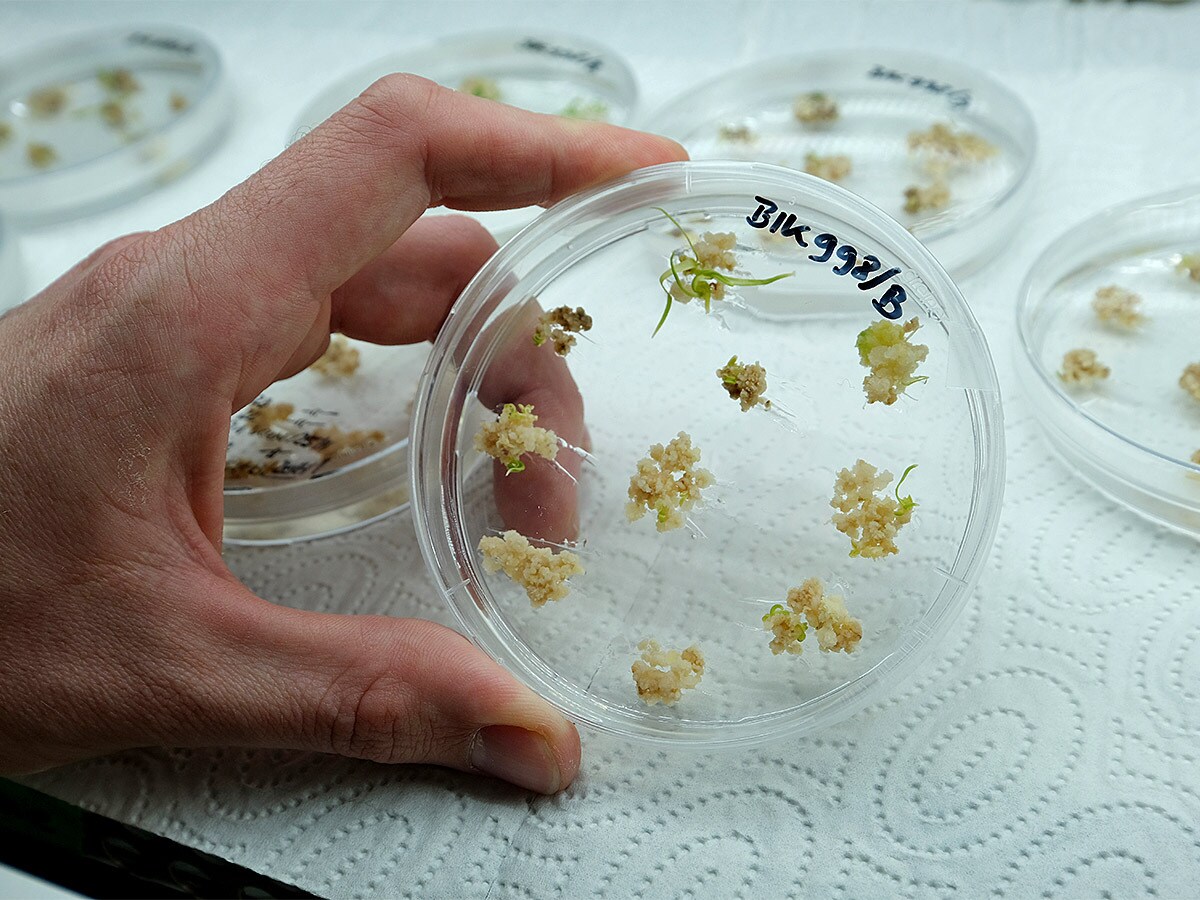Investors have been acutely aware of the positive impacts of breakthrough drugs, as seen with the Covid mRNA vaccines. Gene editing is one area of healthcare that is quickly evolving, as pharmaceutical companies strive to uncover new methods to solve previously incurable diseases by looking at our genetic scripts.
- Gene editing, one strand of genomics, enables the removal of existing DNA and insertion of replacement DNA
- A CAGR of 17% to 30% is predicted for the gene editing market as demographics in the west favor new medicines to tackle the rise in diseases
- The Global X Genomics and Biotechnology ETF offers exposure to this sector
The share prices of gene-editing companies like CRISPR Therapeutics [CRSP], Verve Pharmaceuticals [VERV] and Beam Pharmaceuticals [BEAM] have fallen this year, as investors have become tepid towards companies whose growth is seen as yet to come.
CRISPR has fallen 35% in the year to 9 December, while Verve and Beam are down 41% and 47%, respectively.
Gene editing is a strand of genomics, which refers to the study of the genome, and how certain genes interact with one another. It involves creating modified enzymes that have been engineered to target a specific DNA sequence, enabling the removal of existing DNA and insertion of replacement DNA.
The ability to change an organism’s DNA could potentiate the cure for many diseases caused by mutated or altered genes, including life-altering conditions like cystic fibrosis, diabetes, AIDS and cancer.
According to Strategic Market Research, the global gene editing market was valued at $5.1bn in 2021, and is likely to increase at a compound annual growth rate (CAGR) of 17.33% by 2030.
Nevertheless, companies in the sector are yet to reap these rewards, as they continue to work towards regulatory approval for their therapies.
The FDA holds the keys
Involvement in the health care market means companies engaged in gene editing are subject to regulatory oversight by the Food and Drug Administration (FDA) in the US. While this is good for consumers, it impacts the speed at which such companies can bring products to market and exposes their shares to volatility upon news of regulatory changes.
Last week, the FDA expressed safety concerns around Verve Pharmaceuticals’ gene-editing take on high cholesterol. Verve’s approach involves turning off the PCSK9 gene, which is responsible for regulating proteins that help determine blood cholesterol levels. The FDA’s concern centres on whether such gene editing could be passed on to children. Verve’s share price took a 12.2% hit on the news.
With the ongoing bear market and hesitancy towards risk-taking on the part of investors, the key growth drivers for these companies will be how much capital they can commit to research & development (R&D), and the ability of management to use this capital effectively until they reach profitability.
Demographics, disease and diet
The World Health Organization (WHO) estimates that the world’s population above the age of 60 will double in the next 30 years. Over the same period, cancer diagnoses alone are predicted to rise by 50%, according to Dr. Susan Pandya of Servier Pharmaceuticals, leaving healthcare companies with a plethora of opportunities for breakthrough research.
CRISPR could benefit from this rapid growth. Its CRISPR-Cas9 technology has generated a lot of excitement in the scientific community because it is faster, cheaper, more accurate and more efficient than other genome editing methods.
Beam Therapeutics could also be an attractive investment opportunity. Its genetic medicines aim to treat serious illnesses such as sickle cell disease and leukemia. While companies in the sector tend to operate at a loss, the Cambridge-based biotech firm posted an almost 2,000% revenue increase up to $15.8m in its third-quarter report last month.
Fund in focus: Global X Genomics and Biotechnology ETF
Global X Genomics and Biotechnology ETF [GNOM] offers targeted exposure to gene editing companies. As of 9 December, the fund holds CRISPR Therapeutics and Beam Therapeutics weightings of 3.55%, while Verve is lower down the list at 1.33% of assets under management (AUM). The fund’s two largest holdings are 10X Genomics [TXG] at 5.03% and BioNTech [BNTX] at 4.7%. The fund is down 34.9% year-to-date but up 5.8% over the past month.
For a more passive approach, investors could buy the iShares NASDAQ US Biotechnology ETF [BTEC]. As of 9 December, CRISPR Therapeutics is held at .35%, Beam Pharmaceuticals is at .27% and Verve is .12% of AUM. The fund is down by 30.3% year-to-date and up 3.1% in the past month.
Disclaimer Past performance is not a reliable indicator of future results.
CMC Markets is an execution-only service provider. The material (whether or not it states any opinions) is for general information purposes only, and does not take into account your personal circumstances or objectives. Nothing in this material is (or should be considered to be) financial, investment or other advice on which reliance should be placed. No opinion given in the material constitutes a recommendation by CMC Markets or the author that any particular investment, security, transaction or investment strategy is suitable for any specific person.
The material has not been prepared in accordance with legal requirements designed to promote the independence of investment research. Although we are not specifically prevented from dealing before providing this material, we do not seek to take advantage of the material prior to its dissemination.
CMC Markets does not endorse or offer opinion on the trading strategies used by the author. Their trading strategies do not guarantee any return and CMC Markets shall not be held responsible for any loss that you may incur, either directly or indirectly, arising from any investment based on any information contained herein.
*Tax treatment depends on individual circumstances and can change or may differ in a jurisdiction other than the UK.
Continue reading for FREE
- Includes free newsletter updates, unsubscribe anytime. Privacy policy





